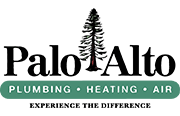Local HVAC Repair: 4 Signs You Need a Tune-Up & More
When it comes to maintaining a comfortable and efficient home environment, the role of a well-functioning HVAC (Heating, Ventilation, and Air Conditioning) system cannot be overstated. Many homeowners and business owners often overlook the signs indicating the need for local HVAC repair, leading to potential issues that can escalate over time. In this blog post, you will learn the signs you need HVAC repair, the importance of regular maintenance, the downsides of neglecting maintenance, and how Palo Alto Plumbing can be your trusted partner in ensuring a seamless HVAC system.
4 Signs You Need HVAC Repair
Inconsistent Temperature: One of the most noticeable signs that your HVAC system may require repair is uneven heating or cooling throughout your space. If certain rooms are consistently warmer or colder than others, it could indicate issues with your system’s functionality.
Unusual Sounds: Pay attention to any strange or loud noises coming from your HVAC system, such as banging, clanking, or squealing. These sounds can be indicative of loose or damaged components that require immediate attention.
Increased Energy Bills: A sudden spike in your energy bills without a corresponding change in usage patterns could be a sign of an inefficient HVAC system. A system struggling to operate properly tends to consume more energy to maintain the desired temperature, leading to higher utility costs.
Poor Air Quality: If you notice a decline in indoor air quality, including increased dust, odors, or respiratory issues, your HVAC system may be at fault. Regular maintenance and timely repairs can help ensure that your system is circulating clean and healthy air.
Importance of Regular Maintenance
Enhanced Efficiency: Regular HVAC maintenance ensures that your system operates at peak efficiency. Clean filters, well-lubricated components, and calibrated settings contribute to reduced energy consumption and lower utility bills.
Prolonged System Lifespan: Just like any other mechanical system, your HVAC system has a finite lifespan. However, routine maintenance can significantly extend its longevity, saving you from the costly expenses associated with premature replacements.
Improved Air Quality: Regular cleaning and servicing of your HVAC system prevent the buildup of dust, mold, and other contaminants. This not only ensures better indoor air quality but also reduces the risk of respiratory issues for you and your family.
Prevention of Costly Repairs: Addressing minor issues through regular maintenance helps prevent them from escalating into major problems that require expensive repairs. Timely detection and resolution of potential problems can save you both time and money.
Downsides to Neglecting Maintenance
Reduced Efficiency: Neglecting HVAC maintenance can lead to a decline in system efficiency, resulting in increased energy consumption and higher utility bills.
System Breakdowns: Lack of regular maintenance increases the risk of sudden system failures, leaving you without heating or cooling when you need it the most. This can be especially inconvenient during extreme weather conditions.
Poor Air Quality: Accumulated dust, debris, and mold in your HVAC system can compromise indoor air quality, contributing to respiratory issues and other health concerns.
Higher Repair Costs: Delaying necessary repairs often leads to more extensive damage, resulting in higher repair costs. What could have been a minor issue with a simple fix may evolve into a complex and expensive problem.
Local HVAC Repair: How Palo Alto Plumbing Can Help
Palo Alto Plumbing understands the importance of a well-maintained HVAC system in ensuring your comfort and peace of mind. Here’s how we can be your reliable partner in local HVAC repair and maintenance:
Experienced Technicians: Our team consists of highly skilled and experienced HVAC technicians who are proficient in diagnosing and repairing a wide range of issues. With Palo Alto Plumbing, you can trust that your HVAC system is in capable hands.
Prompt and Efficient Service: We understand the urgency of HVAC issues, and our commitment to prompt service ensures that we address your repair needs swiftly and efficiently. Timely repairs mean less downtime and inconvenience for you.
Comprehensive Maintenance Programs: Palo Alto Plumbing offers comprehensive maintenance programs designed to keep your HVAC system in optimal condition. Regular check-ups, cleaning, and preventive measures are implemented to prevent potential problems and extend the life of your system.
Transparent Communication: We believe in transparent communication with our clients. Before initiating any repairs or maintenance, our technicians will thoroughly explain the issues and discuss the best course of action. You can trust us to provide honest assessments and fair pricing.
Conclusion
Investing in the repair and maintenance of your HVAC system is not just about comfort; it’s about safeguarding your investment, promoting energy efficiency, and ensuring the well-being of your family or employees. By paying attention to the signs that indicate the need for local HVAC repair, prioritizing regular maintenance, and partnering with trusted professionals like Palo Alto Plumbing, you can enjoy a comfortable and efficient indoor environment throughout the year. Don’t wait for a breakdown to address your HVAC concerns – take proactive steps to keep your system running smoothly and reliably.
Call Us Today
Contact Palo Alto Plumbing today for swift, local HVAC repair, proactive maintenance, and a commitment to your comfort. Let our experienced technicians ensure your system runs seamlessly, keeping your home or business at the perfect temperature. Schedule your service now for a worry-free HVAC experience!

